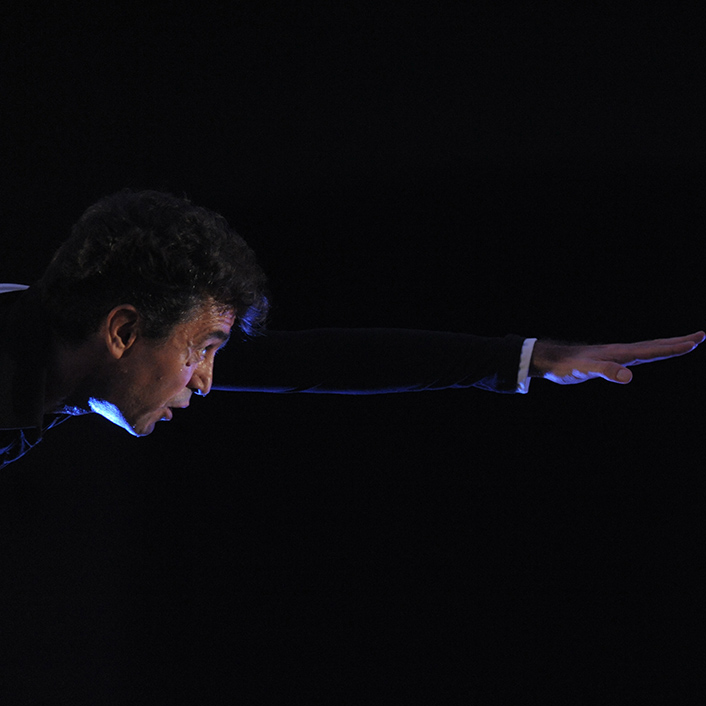“L’ambito”, a performance by Atacama Company performed at Teatro Concordia on 15th September, is a work full of ideas and suggestions, an inlay of dance and music, showing the great ability of the two dance-actors Patrizia Cavola and Ivan Truol. It was the fourth engagement ofthe fifteenth national meeting “Teatri Invisibili” (“Invisible Theatres”).
In Teatro Concordia the public was able to enjoy the formal work and appreciate the “social” implications of the action, particularly the theme of the life of the individual in the contemporary world, boxed in confines like the cells of a honeycomb, between work, urban areas, restricted times and spaces.
The communicative force of the dance movements of the two characters on the scene and the attention to detail in this minimal show are very effective, and so, especially, is the original music by Epsilon Indi, and also the text by Oscar Stuardo (translated by Cavola and Truol).
The curtain rises on two actors at the opposite ends of the stage, one bathed in cold light, the other in warm light. The costumes are black with white stripes, so they seem to recall the tarmac, the roads of any town, consequently the traffic, the daily disorder. The two actors are well contained in their respective “confines”, but they will slowly learn to move and communicate, at last attaining the merging of their two living areas, throughdance exchanges that suggest a dialogue based not any more on words, but on pushing, pulling, the impenetrability of the bodies, rolling, adhering, nearness, and distances.
Once they have acquired the balance word/dance, the two go on to “face” the appearance of the “other”, in the form of faces projected on the backdrop, whose expressions can be neutral, smiling or frowning. Faces that will not disappear, as the two actors would wish, but will multiply, re-absorbing the two characters in a dimension of social anonymity, that same dimension that the initial “confines” kept out, at a safety distance, more aseptic than personal.
Dance-theatre, physical theatre, Beckett: many points of reference for a performance that could be parallel to various other recent and less recent theatrical experiences, and offers itself to the audience with the fluid gestures of Cavola and Truol, their movements, a well calibrated soundtrack and the minimalism of a simple narrative scheme, from the self to others, breaking out of the claustrophobia of “confines” that are not authenticity but a prison.
Giovanni Desideri
Ilibis


